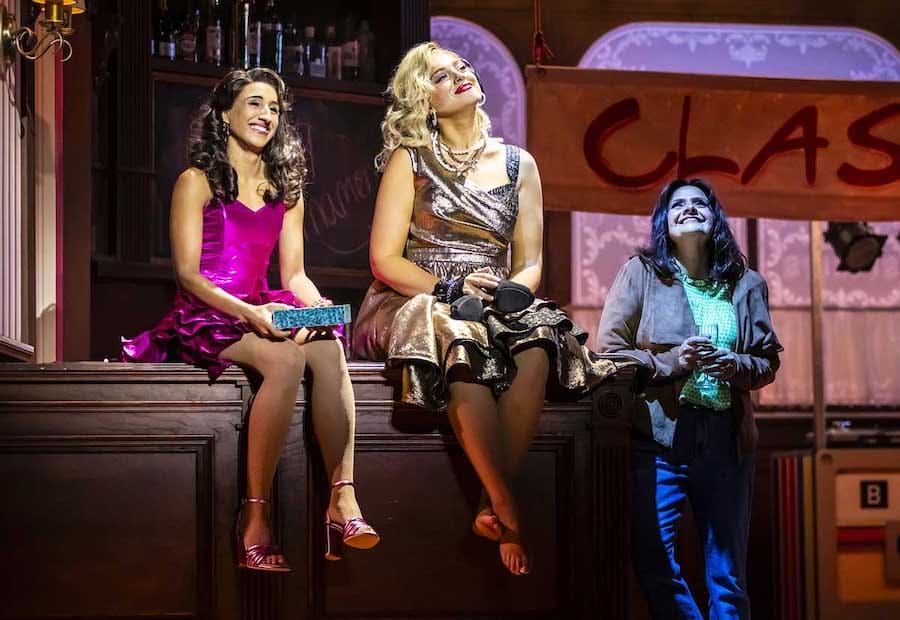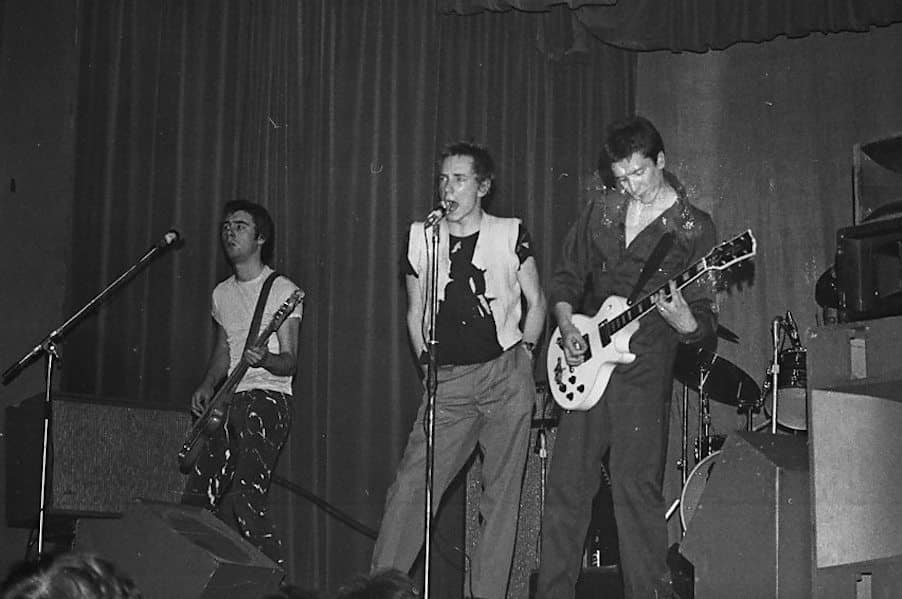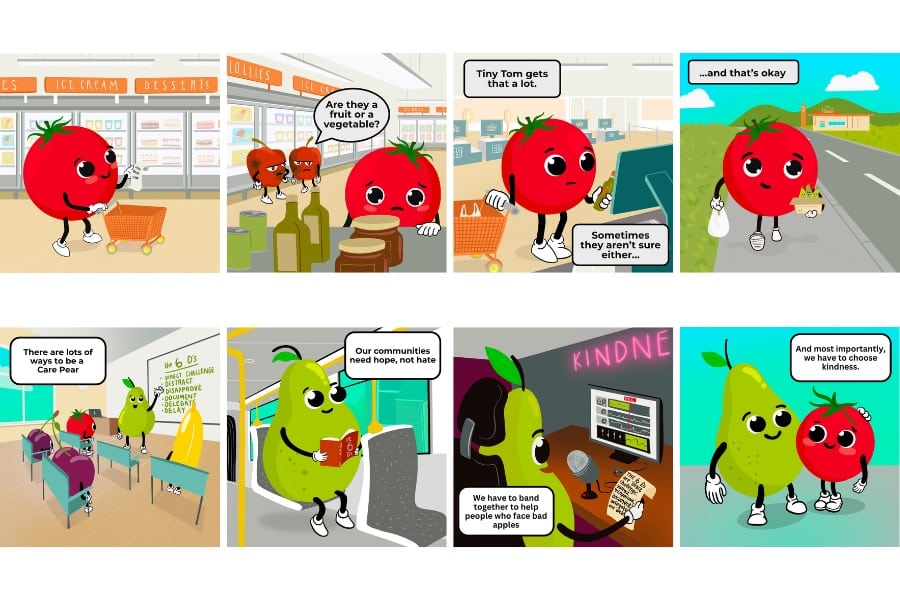Review: Fade at The Lowry is ‘a heartfelt play that connects well with the audience’
- Written by Shayan Le
- Last updated 10 months ago
- City of Salford, Culture, Theatre
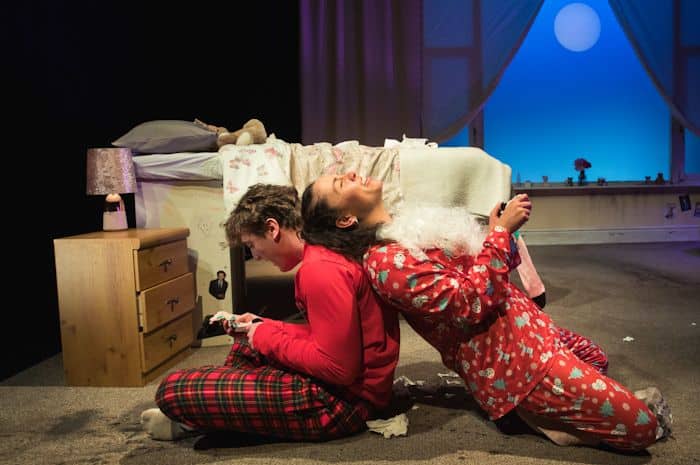
Fade follow two siblings, Cassie and Rubin as they reflect on their relationship after reuniting following the death of their mother.
The first half is quite bouncy. The clubland classics playing in the background make it feel like a gradual exploration of a bittersweet youth with the siblings being paired with the nostalgic essence of 90’s music.
As the story develops, it becomes a more difficult watch. You may want it to end a certain way, but not all tales have happy endings.
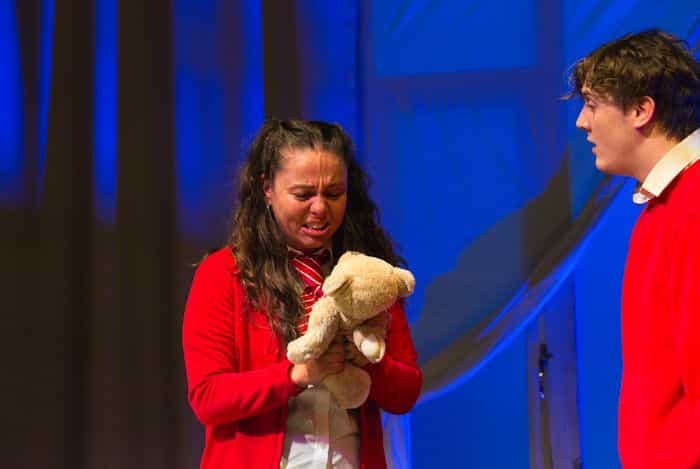
Unsettling presence
As the powerful bond between them is explored, you begin to understand how their close relationship develops through the years by watching the parallels between their younger selves. The portrayal of the sibling dynamics is reflected throughout with an unspoken connection from the trauma bond they have experienced together.
There is an unsettling presence of a woman we never see – the mother. The conversation between Cassie (played by Daneka Etchells and Lauren-Nicole Mayes) and Rubin (played by Matthew Devlin and Stefan Race) gives a haunting exploration of the effects of depression on others within their circle.
The play is set exclusively in Cassie’s room which Lucy Sneddon designs brilliantly, from the early 2000’s girlish magazine cut outs across the bed and wall to the dampened and discoloured walls which reflect the lack of change in this harsh environment.
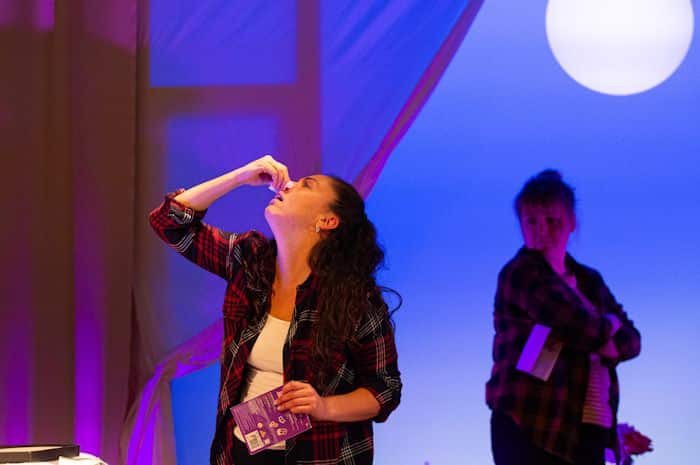
Heartfelt
Alice Christina-Corrigan has written an extremely heartfelt play that connects well with the audience through her moving writing. She delivers moments with some humorous dialogue and this provides a quick and welcome break from the intensity of the piece.
She is a visually impaired and a neurodivergent writer and director. It was important for her to create a team that reflects this and she is keen in securing disability representation through all elements of the production with access embedded into every part of the decision-making process.
All the actors give excellent performances with Lauren Nicole Mase the standout performer for me. She portrays Cassie’s younger self as a stoic character who adapts throughout the play and it is stunning to see.
Fade will appeal to and resonate with many people, whether it’s with the trauma or just the sibling dynamic. It’s a great night out which celebrates wonderful writing and the effect it can have on an audience.
Fade has finished its short run at The Lowry but you can read more about the play, the writer and director and how The Lowry develops work with local artists here.
- This article was last updated 10 months ago.
- It was first published on 9 April 2024 and is subject to be updated from time to time. Please refresh or return to see the latest version.
Did we miss something? Let us know: [email protected]
Want to be the first to receive all the latest news stories, what’s on and events from the heart of Manchester? Sign up here.
Manchester is a successful city, but many people suffer. I Love Manchester helps raise awareness and funds to help improve the lives and prospects of people across Greater Manchester – and we can’t do it without your help. So please support us with what you can so we can continue to spread the love. Thank you in advance!
An email you’ll love. Subscribe to our newsletter to get the latest news stories delivered direct to your inbox.
Got a story worth sharing?
What’s the story? We are all ears when it comes to positive news and inspiring stories. You can send story ideas to [email protected]
While we can’t guarantee to publish everything, we will always consider any enquiry or idea that promotes:
- Independent new openings
- Human interest
- Not-for-profit organisations
- Community Interest Companies (CiCs) and projects
- Charities and charitable initiatives
- Affordability and offers saving people over 20%
For anything else, don’t hesitate to get in touch with us about advertorials (from £350+VAT) and advertising opportunities: [email protected]
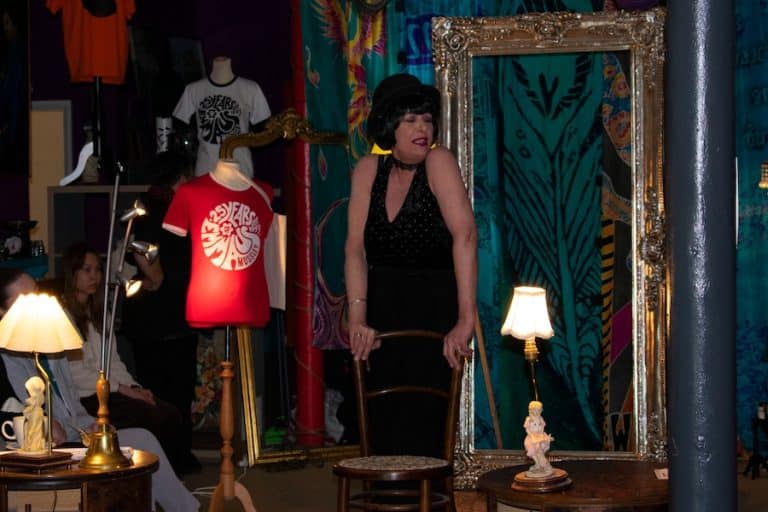
The Social Studio offers fun and friendship for all at Emmaus Mossley

Play ‘This Kind of Black’ returns to tell a vital Moss Side story










